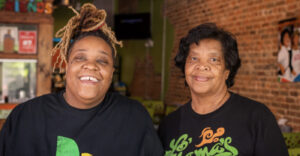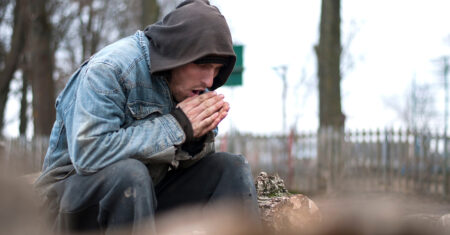By Jennifer Porter Gore, Word in Black | San Diego Voice and Viewpoint
A little less than a decade ago, it was alarming news that shook the nation. Deaths from suicide, drug overdose, and alcohol-related liver disease were slashing the life expectancy among white Americans.
The “deaths of despair” phenomenon centered mostly on non-college-educated whites whose declining socioeconomic conditions, researchers said, led to a spike in premature deaths between 1999 and 2013.
But researchers at the University of California-Los Angeles medical school and other institutions have found that deaths of despair have skyrocketed during the last 7 years. The spike, researchers say, has been fueled by the exploding use of illegal drugs such as fentanyl and heroin, as well as an increase in alcohol-related deaths around the same time as the COVID-19 pandemic began.
In fact, “[f]rom 2015 to 2022, the mortality rate from deaths of despair nearly tripled among Black people and it also has surpassed the rate among white people,” says the analysis, published in JAMA Psychiatry. The rates among American Indian or Alaska Native midlife adults in 2022 also were nearly 2.4 times higher than for whites.
“While the opioid crisis did raise drug overdose deaths among white Americans for a time, it was an anomaly,” says Joseph Friedman, the social medicine expert at UCLA who was the lead author on the analysis. But by 2022, he says, the rate of such deaths among whites had started to decline but had increased exponentially among Black people.
“What’s really important is that now, with these three causes of death, the gap has closed, and it’s moving in the other direction,” Friedman said. The deaths of despair theory reached the national agenda in 2015 when two Princeton University economists argued that poor mental health, stemming from a lack of economic opportunities, was behind rising premature mortality rates among less-educated whites.
The UCLA researchers added that flaws in the methodology of the 2015 report didn’t give enough consideration to long-standing racial inequities in income, educational attainment, incarceration, and access to quality medical care. Those factors, they wrote, can contribute to drug use and poor mental health outcomes.
Because they did not consider those flaws, the Princeton study distorted conclusions about who was most at risk of death of despair, according to the UCLA research. Statistics for Native Americans weren’t included at all, which UCLA first pointed out in a January 2023 report.
“It was burned into the American psyche that it was white people in the rural U.S.” who were most at risk of dying prematurely, Friedman said. “It was just a very small piece of the truth that was very interesting but was widely sold as something it wasn’t.”
Without question, America’s mental health crisis writ large has gained more attention in the past two decades, and it became Topic A during the COVID-19 pandemic. Yet multiple studies show overall well-being is still under-addressed and under-treated — especially among Black Americans, who continue to face barriers to adequate mental health care.
According to Centers for Disease Control and Prevention data, 1in 5 adults in the U.S. live with a mental illness, including just over 21% of Black people. Suicide is now the second-leading cause of death among young people ages 10 to 14, and the suicide rate among Black youth ages 10 to 19 surpassed that of white peers for the first time in 2022.
The rate has increased 54% since 2018, compared to a 17% decrease for white youth. But almost 20% of all youth ages six to 17 experience a mental health disorder each year, ranging from anxiety and depression to more severe illnesses like schizophrenia and bipolar disorder.
Despite the fact that racism is recognized as a public health crisis, access to medical care for Black people — including mental health care — remains a significant challenge. More than half of all adults with mental illness do not receive treatment, according to the Substance Abuse and Mental Health Services Administration.
An analysis from KFF, a health policy research firm, issued last week found that Black (39%) and Latino (36%) adults who report fair or poor mental health are less likely than white adults (50%) to say they received mental health services in the past three years. Barriers to access included “costs and difficulties finding providers, with people of color citing additional challenges such as difficulty finding providers with shared background and experiences, lack of information, and stigma and embarrassment,” according to the KFF analysis.
Having culturally competent care — clinicians intimately familiar with the lived experiences of historically disadvantaged groups — is essential for effective mental health treatment. Yet according to the KFF survey, 41% of Black respondents said it was either “somewhat” or “very difficult” to find a mental health care provider who understood their issues, could schedule an appointment in a timely manner, and who were affordable.
At the same time, just 4% of psychologists and 2% of psychiatrists are Black, according to their respective medical professional organizations. Experts say that further exacerbates the challenge of finding culturally competent care.
If you need emotional support, are thinking about suicide, or are worried about someone else, call or text the National Suicide & Crisis Lifeline at 988. Help is available 24/7. TTY users can dial 711 then 988 to get help.
The post As White ‘Deaths of Despair’ Made News, Black Ones Skyrocketed first appeared on BlackPressUSA.







